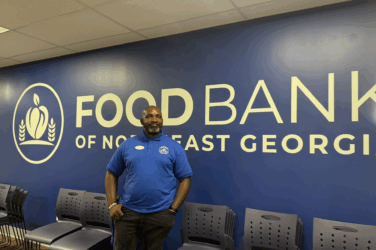SUWANEE — Nineteen-year-old Brandon is in trouble. Already the young man has survived
homelessness as an infant, done jail time as an adult, and been labeled with four different
behavioral or mental health problems. His adoptive mother, Bonnie, 52—who asked that their
last name not be used—explains how the trouble began.
“Brandon was born addicted to crack,” Bonnie said, “and he was not raised well when he was
little. His mother was very much into her addiction.”
Bonnie and her husband, Harry, 52, adopted Brandon and his brother, Patrick, when the boys
were two and three years old. By that time, they had already lived briefly in three foster homes,
two of which were abusive. Both had trouble forming bonds with caregivers, a condition known
as reactive attachment disorder. Both were also thought to be severely mentally retarded.
Patrick responded well to the love and care Bonnie and Harry provided, but Brandon’s
behavioral problems persisted. He spent years living in residential treatment centers, but returned
to his parents’ home after running away from treatment six months before his eighteenth
birthday. He was kicked out after assaulting Bonnie, however, and spent more than a year in jail
as an adult for theft and vandalism.
Now, at 19, Brandon is on his own, having moved into an apartment with friends in mid-
October. Bonnie is concerned for her son’s future.
“I’m worried about him because I don’t know what’s going to happen,” said Bonnie. As to
whether Brandon will end up back in jail, Bonnie said, “Thirty percent chance. His motivation is
really strong not to go back.”
Brandon’s story illustrates some of the challenges faced by young adults with mental illnesses.
More than two million children, youth and young adults come into contact with the juvenile
justice system each year, according to the Technical Assistance Partnership for Child and Family
Mental Health, a federal agency that helps prevent and treat mental health and substance abuse
problems. Of those, between 65 and 70 percent have had at least one diagnosable mental health
need, and 20 to 25 percent have serious emotional issues.
Each year an estimated 25,000 youth age out of foster care services nationwide and have no
homes to go to, said sociologist Todd Krohn, who teaches criminal justice at the University of
Georgia in Athens.
“Those kids, they’re at a huge risk of homelessness, drug use, and incarceration,” said Krohn.
Moreover, 32 percent of children and youth in foster care are on psychotropic medications, as
compared to the national average of 20 to 25 percent.
This statistic masks an ugly reality, Krohn said.
“The use of psychotropic agents, I would suggest, is a way to keep those kids more manageable,”
said Krohn. “In other words, let’s get them on a psychotropic agent. Then they’ll be easier to
handle by the foster system, and they’ll be more appealing for a family to come and adopt,
because they’re nice and well behaved.” This is a disservice to the children and to foster families
and sets the stage for trouble.
Krohn is critical of a system that failed Brandon early in life.
“Foster care was a great idea to get kids out of institutionalization—orphanages—where terrible
things happened,” Krohn said. “We shut those down, and the foster system arose to take care of
those kids. But the problem is that, for every good foster parent, there’s going to be a bad
situation: the kind of parent that is just doing it for the money.”
Unlike many children in foster care, Brandon was placed with a loving family that adopted him
and never gave up, no matter what. Bonnie and Harry were tested, however, as Brandon was
diagnosed with Asperger’s syndrome (a high-functioning form of autism), developed bipolar
disorder, and had schizoaffective episodes. He was in and out of residential programs that,
Bonnie says, failed her son.
“I wish we’d had a better support system, instead of always trying to scramble and figure out
what to do to help him,” Bonnie said. “I wish we would have had people believe us when we told
them, ‘We have troubles with him,’ instead of them telling us, ‘Just let him have some time to
adjust.’ [I wish] people had believed us when we said that we hadn’t hurt him, that he needs
help, that there’s something wrong with him, instead of them telling us how wrong we were.”
Bonnie sees many times when Brandon fell through the cracks, but she sees hope for her son’s
future.
“I still love him a lot, and I still want the best for him,” Bonnie said. “… But he needs to be his
own man, and I’m happy that he’s trying to take those steps.”
By Sandra L. McGill







